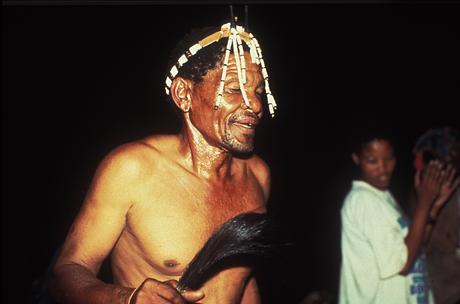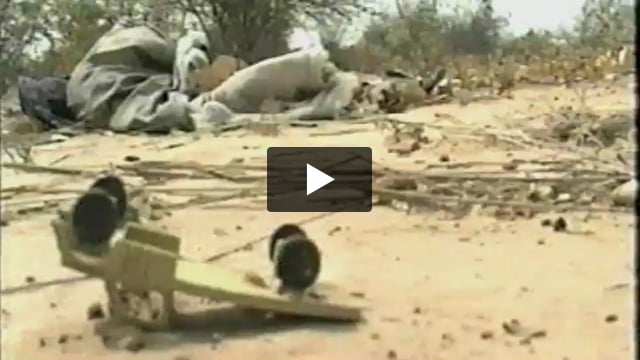Diamonds bring despair for the Bushmen
July 31, 2002
This page was last updated in 2002 and may contain language which is now outdated.
'Why must I move? They will kill me for my land… We are oppressed until we die, and soon there will be no one left.' Mogetse Kaboikanyo, who died in June 2002 after being forced to move.
The last self-sufficient 'Bushmen' of the Kalahari desert have been brutally thrown off their land and dumped in resettlement camps. Unless they are allowed to return soon, thousands of years of Bushman culture will come to an end. Behind the government's actions lurks a deep-seated racism – and the prospect of riches from diamonds under the Bushmen's land.
The Gana and Gwi Bushmen and their neighbours the Bakgalagadi are the original inhabitants of the central Kalahari. During the last 200 years, however, their land has been increasingly encroached on by both Bantu tribes, who now make up the majority in Botswana, and white colonists. In 1961, in an effort to protect their land, it was declared the Central Kalahari Game Reserve, a name chosen because it was thought too controversial to call it Bushman land.
In 1966, Botswana won independence, and soon afterwards huge diamond deposits were discovered outside the reserve. Botswana is now a rich country and the world's largest exporter of gem diamonds. In the 1980s, intensive exploration for diamonds began inside the Bushman reserve. In 1986, the government stated that its official policy was to move the Bushmen off their land to 'relocation camps', called New Xade and Kaudwane, outside the reserve.
Life soon became difficult for the Gana and Gwi and their neighbours the Bakgalagadi. After living by hunting and gathering for millennia, they were told hunting was now illegal without licences, which they had to apply for in much the same way as tour companies operating hunting holidays for rich tourists. Persecution increased, and there were several, well-documented, instances of torture by officials. Families came under constant pressure to move to the relocation camps: at a typical meeting the minister of local government told the Bushmen, 'I have not come to talk of anything else except to tell you that you will move, because this place is for wildlife.'
Meanwhile, at least two substantial deposits of diamonds were located inside the reserve – near the Bushmen villages of Gope and Gugama. Test mining at Gope in 1997 revealed a deposit described by an industry source as 'the best new target in the Kalahari'.
Towards the end of that year, officials moved out over 1,000 Bushmen by force, loading people and their dismantled homes onto trucks. The entire settlement of Xade, which was equipped with a borehole, clinic and primary school, was destroyed. Many arrived in the camps to find their lives a mixture of dependency, boredom and despair. Alcoholism and violence became rife. Many Bushmen tried to move back to the reserve, and some succeeded.
By early 2002, less than 1,000 Bushmen remained on their land. In February, in an operation overseen by a retired army general, trucks moved in, the Bushmen's water pump was disabled and their water tanks emptied. (Since surrounding cattle ranches use most of the previously available water and have lowered the water table, the Bushmen, whose land is desert, now depend on water pumped from boreholes.) Almost all the Bushmen were trucked out; some were threatened with being burned in their homes if they resisted.
Survival believes the reserve's diamond deposits are the principal reason behind the evictions. Under international law the Bushmen are the rightful owners of their land: it is likely that in the government's eyes this puts at risk future exploitation of the deposits. De Beers, the massive diamond company which operates the country's major diamond mines in 50:50 partnership with the government, claims it has no plans to mine Gope for 'the foreseeable future' – but it presently has an abundance of supply, and it would not be in its interests to mine another deposit at this stage. It currently claims the find is 'sub-economic': in 1997, however, it admitted it was 'moderately large'. De Beers has not given up the concession.
You can help the Bushmen of Botswana. Click here to write a letter of protest to the Botswana Government.
Click here to donate to our work for the Bushmen.



